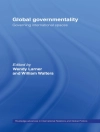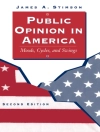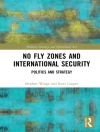With the advent of devolution, it is clear that the British Constitution is currently undergoing a period of dynamic transformation. England, Ireland, Scotland, and Wales were slowly united by conquest and treaty over the last 300 years, a unity which was only broken by the 1922 agreement that split Ireland in two. The last 50 years have seen the collapse of empire, and while the pull of local nationalism within the United Kingdom continues to strengthen, integrative narratives of Britishness weaken.
In this insightful book, Arthur Aughey outlines the changing character of the United Kingdom polity, and examines the developing debate about the meaning of the Union in the context of New Labour/New Britain.
In a systematic survey of historical, theoretical and political reflection on the nature of Britishness, he questions what the Union once was, what it means now and what it might become, taking into account the challenge posed by internal divisions along with the problems posed by European integration and globalisation.
Table of Content
Preface
Section One: Questions
1. When Was Britain?
2. What Was Britain?
3. Why Is Britain?
Section Two: Narratives
4. The Conservative Nation
5. The Labour Nation
6. National Peoples
Section Three: Futures
7. Modes of Self-Determination
8. Missing England
9. A European Conclusion?
References
Index
About the author
Arthur Aughey is Senior Lecturer in Politics at the University of Ulster. He is a member of the Northern Ireland Community Relations Council, the Northern Ireland Cultural Diversity Committee and Executive Committee Member of the Irish Association. His most recently published work is Northern Ireland Politics, edited with Duncan Morrow (Longman, 1996).












